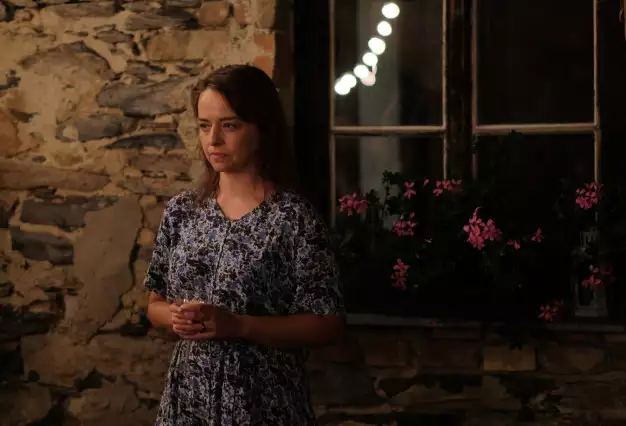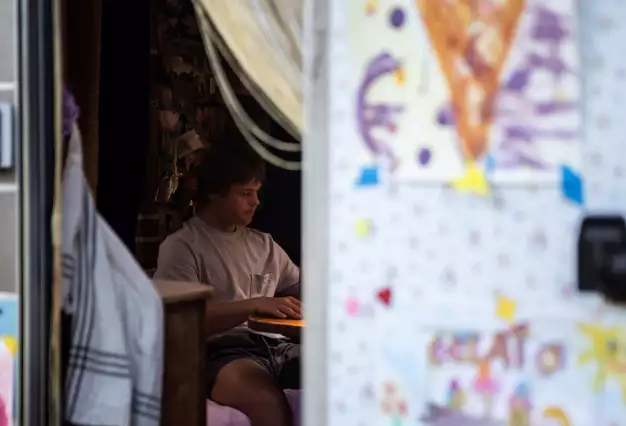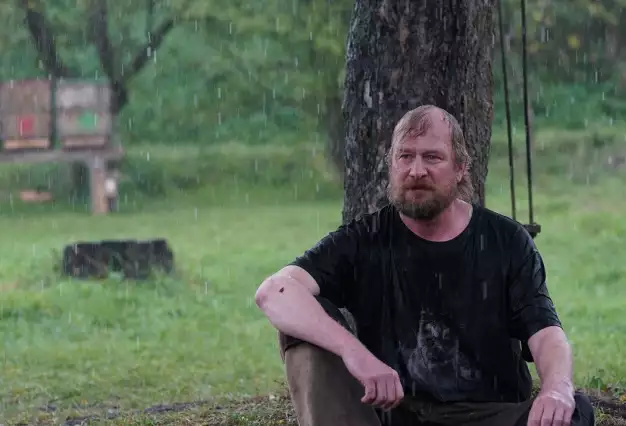
21 April 2018
Czech Film Springboard 2018
New Faces and Established Names
Czech Film Springboard 2018
New Faces and Established Names

The 2018 edition of Czech Film Springboard brings together a balanced selection of newcomers and veterans to introduce their feature film projects in development.
Article by Martin Kudláč was published at Czech Film Magazine / Summer 2018
In 2016, there was an overhaul of Finále Plzeň, the annual showcase for Czech cinema. One change designed to transform the domestic showcase in order to better meet demand was an expansion of the industry sidebar. This resulted in a new platform titled Czech Film Springboard, a pitching session for Czech projects, organised by the Czech Film Fund / Czech Film Center, and a hub for domestic and foreign film professionals alike. This type of initiative had previously been missing in the Czech film industry ecosystem.
The two previous editions have already borne fruit: the fiction feature debut Filthy, by budding director Tereza Nvotová, had its global premiere at the international Film Festival Rotterdam, the Netherlands’ largest cultural event, after the project was presented to the Dutch representative in 2016. Nvotová’s rape drama enjoyed a long festival life, and became the most attended arthouse film in Slovakia as well as taking the top honor at the 2017 Czech Film Critics’ Awards.
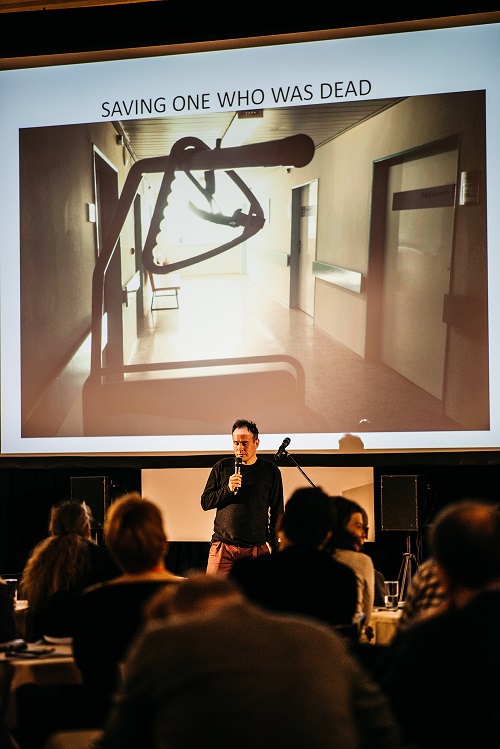 At the 2017 edition of Czech Film Springboard, auteur Václav Kadrnka presented his third feature-length fiction project, Saving One Who Was Dead. Two months later, he won the main prize at the Karlovy Vary International Film Festival for his sophomore feature, Little Crusader. He also toured international markets and forums, including the MIA Market, in Italy, and Sofia Meetings, in Bulgaria, not to mention the Hong Kong Asia Film Financing Forum, where he netted an HAF Award for Saving One Who Was Dead.
At the 2017 edition of Czech Film Springboard, auteur Václav Kadrnka presented his third feature-length fiction project, Saving One Who Was Dead. Two months later, he won the main prize at the Karlovy Vary International Film Festival for his sophomore feature, Little Crusader. He also toured international markets and forums, including the MIA Market, in Italy, and Sofia Meetings, in Bulgaria, not to mention the Hong Kong Asia Film Financing Forum, where he netted an HAF Award for Saving One Who Was Dead.
“People who took an interest in my project in Plzeň are following it, tracking its development, and even recommending it elsewhere. Saving One Who Was Dead received support from the Czech Film Fund, and I’m negotiating with international coproducers and partners. we’re currently finishing the final version of the script,” says Kadrnka.
The team behind Tomáš Weinreb and Petr Kazda’s breakthrough feature debut, I, Olga Hepnarova, which scored awards and distribution deals all over the world, also brought their follow-up project, Nobody likes Me, to last year’s edition of Springboard.
“Our project from the last Springboard edition is still in development. Taking part helped a lot because we needed feedback to decide which way to develop it. Since then, the project has been selected for the Berlinale Coproduction Market, so Plzeň was a helpful first step for sure,” says the film’s producer, Guillaume de Seille, voicing an opinion shared by other filmmakers who took part in the event.
Even domestic projects with an international dimension receive spotlight recognition at the Czech Film Springboard. Kaveh Daneshmand’s Night of The Whale is a prominent example. Daneshmand was pitching his project in front of film professionals for the first time and said he appreciated the “useful feedback sessions,” which gave him “a very good idea of what an effective pitch should be like.” He said it also gave him an invaluable opportunity to network with professionals from different fields within the film industry.
Daneshmand is currently working on a screenplay for his feature debut, with Ivo Trajkov serving as script consultant. On top of that, he has managed to shoot a short film, titled Alula, inspired by the story from Night Of The Whale, which will serve as a proof of concept for the full feature film.
Other projects featured in previous editions of Czech Film Springboard have also thrived. Olmo Omerzu’s highly anticipated feature, Winter Flies, which scored a Polish coproducer in Plzeň, is now finished, while Teodor Kuhn’s By the Sharp Knife and Mira Fornay’s Frogs With No Tongues are both nearing completion. likewise, Tomasz Mielnik’s project Gregorius, The Chosen One is being developed with the help of the ScriptEast program, where the screenplay was chosen as one of the best submitted by screenwriters from Central and Eastern Europe. In a similar vein, Robert Hloz’s sci-fi feature, Restore Point, won the Screen International Best Pitch Award at the Baltic Event coproduction market and is now actively seeking coproducers for the project.
Visiting international professionals welcome the opportunity to have a sneak peek at upcoming talent and promising projects in the pipeline. As Marcin Luczaj of New Europe Film Sales acquisitions said, they consider the event “a guideline to what’s coming, what to follow, and which talents are developing.”
Omerzu’s Winter Flies also appeared in the newly minted Works in Progress section of Czech Film Springboard. Presenting a selection of domestic projects in post-production, Works in Progress was created in response to rising demand from foreign professionals, especially sales agents and festival programmers, for interesting domestic offerings that demonstrate the relevance of contemporary Czech cinema to international audiences.
Emerging Talents on the Horizon
When it comes to the Czech Republic’s history and its echoes in general discourse, the new generation of filmmakers all appear to be tuned to the same wavelength. Three up-and-coming directors now have chosen to revisit the complicated relations between Czechs and Germans along their shared border from both a historical and contemporary perspective.
Jan Bušta, prolific director of audiovisual campaigns and the experimental docu-operetta Television will!, is preparing a film called Bloody Easter, based on true events from the borderlands in the post-World War II period. “To be successful, it will have to balance on the edge of several genres,” says Bušta. To achieve this, he will piece together a mosaic of genre conventions—westerns, thrillers, coming-of-age stories, and psychological thrillers—creating a drama using both a subjective and objective filming approach.
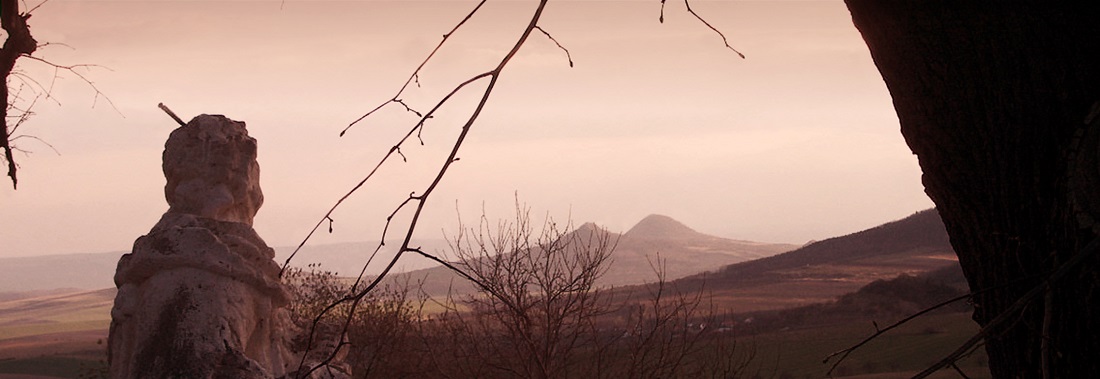 Wirbel, the feature debut by director and composer Tomáš Hubáček, also revolves around the topic of Czechs and Germans in the region known to Germans as the Sudetenland. Hubáček’s interest in landscape, environmental philosophy, and pilgrimages are evident in his film, which he intends as an homage to the Sudetenland countryside: “Its genius loci, the people who once shaped it, and the people who want to live there today,” Hubáček says. His musical inclinations will also influence the film’s form as “an atmospheric audiovisual composition,” he adds. In genre terms, Wirbel will be a mystery film, an underrepresented genre in Czech cinema. Hubáček says he is looking for a specific Czech form of the genre, merging the two phenomena of “searching for a secret” and “wandering through the country.” Post-production is slated to take place in 2020.
Wirbel, the feature debut by director and composer Tomáš Hubáček, also revolves around the topic of Czechs and Germans in the region known to Germans as the Sudetenland. Hubáček’s interest in landscape, environmental philosophy, and pilgrimages are evident in his film, which he intends as an homage to the Sudetenland countryside: “Its genius loci, the people who once shaped it, and the people who want to live there today,” Hubáček says. His musical inclinations will also influence the film’s form as “an atmospheric audiovisual composition,” he adds. In genre terms, Wirbel will be a mystery film, an underrepresented genre in Czech cinema. Hubáček says he is looking for a specific Czech form of the genre, merging the two phenomena of “searching for a secret” and “wandering through the country.” Post-production is slated to take place in 2020.
 Tomáš Hodan, in the sports drama The Last Race, his feature-length debut, ventures further back in time, before World War II, to examine Czech-German relations in the region through the true story of two Czech skiing pioneers, Bohumil Hanč and Václav Vrbata, who died in the mountains during a fateful race in 1913. Hodan is convinced that previous accounts of the story have been biased, told “to suit the political and social situation.” Thus he has resolved to “clean it of all historical dirt” and narrate it exactly “as it happened,” with a German skier interfering in events by attempting to save one of the Czech competitors. Hodan already presented the project at the Berlinale Coproduction Market, and shooting is slated for February to May 2019, with a release year of 2020. Hodan says The Last Race will portray friendship, courage, and bravery “taking precedence over themes of homeland and nation.”
Tomáš Hodan, in the sports drama The Last Race, his feature-length debut, ventures further back in time, before World War II, to examine Czech-German relations in the region through the true story of two Czech skiing pioneers, Bohumil Hanč and Václav Vrbata, who died in the mountains during a fateful race in 1913. Hodan is convinced that previous accounts of the story have been biased, told “to suit the political and social situation.” Thus he has resolved to “clean it of all historical dirt” and narrate it exactly “as it happened,” with a German skier interfering in events by attempting to save one of the Czech competitors. Hodan already presented the project at the Berlinale Coproduction Market, and shooting is slated for February to May 2019, with a release year of 2020. Hodan says The Last Race will portray friendship, courage, and bravery “taking precedence over themes of homeland and nation.”
Sports and coming-of-age meet in Tomáš Polenský’s feature debut, The Pack, addressing the issue of bullying. The world of youth sports is one the director knows from personal experience, and his film tells the story of 16-year-old David, who attempts to succeed as goalie on a hockey team where he is being bullied. Polenský says he not only seeks to discourage bullying but also intends the story as an analogy of “contemporary, aggressive society, which lacks empathy for its weaker members, such as refugees or minority groups.” Polenský, who has experience directing documentaries too, strives to render the story in a raw style with authentic cinematography and dynamic editing, designed to hold the attention of young people, who are a target audience for the film. Post-production is expected to be complete by the end of 2019, followed by appearances on the festival circuit, mostly at festivals with sections for either youth films or emerging filmmakers.
Upcoming Projects From Experienced Filmmakers
Tomáš Mašín, director of the big-budget crime comedy The Wilson City (2015), joins the young generation in using German-Czech historical ties, in a contemporary drama about guilt and the past based on the Radka Denemarková novel Money From Hitler. In Mašín’s story, revolving around the postwar trauma of the former Czechoslovakia, Denis, a respected surgeon, returns to his home village to protect his family’s property from claims made by Gita, daughter of the original German Jewish owners. He sees Gita as a Nazi collaborator, while she regards him and the rest of the villagers as the offspring of those who attempted to murder her upon her return from a concentration camp. The director says his goal is to make a nonjudgmental film, leaving viewers to form their opinions. “We aim to tackle a very difficult and complex topic in the most audience-oriented manner,” says producer Silvie Michajlova, adding they are not afraid to describe their approach as mainstream.
After the success of The Snake Brothers in 2015, followed by Dwarf, “a family television series not for the entire family,” in 2017, Jan Prušinovský is developing his next feature film, Mistakes, written by Roman Vojkůvka. This time out, Prušinovský ventures into new territory with a romance depicting the story of Ema, a young woman who in her teen years appeared in porn videos. The story centers around the backlash resulting from her youthful impetuousness and her liberal upbringing, which Prušinovský considers a national attribute, and how her past affects her relationship with her “true love.” The director notes he has never had a female protagonist in his stories before, so he sees the new project as “a huge challenge, almost a necessity.” He points out that pornography won’t be front and center in the story, though it won’t be avoided either.
The Serbian-born Prague-based director Slobodanka Radun, together with Bionaut producers Danny Holman and Vratislav Šlajer, is now bracing for an ambitious project with international parameters: Sunburn. Their project tells the story of a family’s encounter with a young couple living in a villa in Croatia during a heat wave. As the plot unfolds, lies and secrets emerge, leading to tragedy. Holman says the project will bear a distinct resemblance to European psychosexual thrillers such as Deray’s La Piscine, Polanski’s Knife in the Water, Ozon’s Swimming Pool, and Guadagnino’s A Bigger Splash, all of which cramp a small cast into an isolated location.
.jpg) Sunburn is set up as a Czech, UK, Serbian, and Slovak coproduction. Holman described it as Bionaut’s most ambitious project yet, “since the project’s geographic scope and size are larger than for most traditional Czech movies.” He added that the film would interest not only a domestic audience but also an international one. Principal photography is scheduled for September 2019, with the final cut expected by spring or summer of 2020.
Sunburn is set up as a Czech, UK, Serbian, and Slovak coproduction. Holman described it as Bionaut’s most ambitious project yet, “since the project’s geographic scope and size are larger than for most traditional Czech movies.” He added that the film would interest not only a domestic audience but also an international one. Principal photography is scheduled for September 2019, with the final cut expected by spring or summer of 2020.


